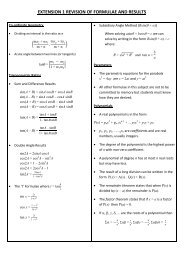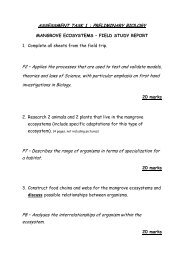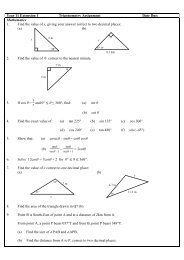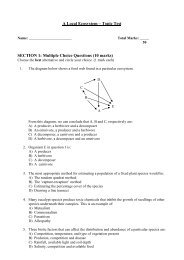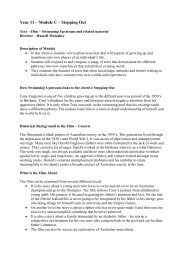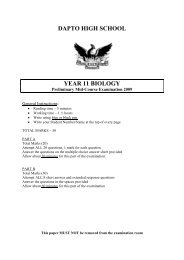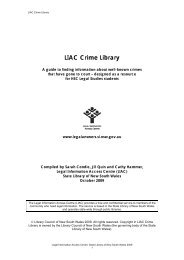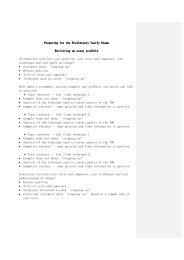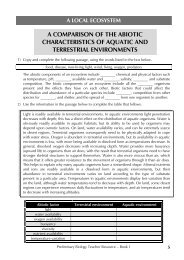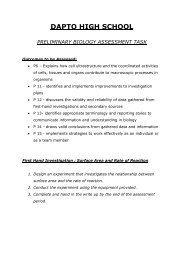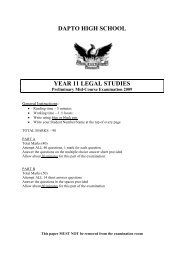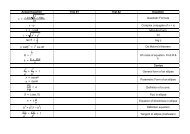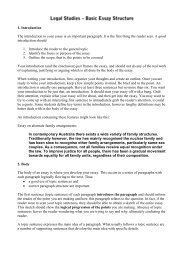DAPTO HIGH SCHOOL – Science Year 7 - Topic: Being a Scientist
DAPTO HIGH SCHOOL – Science Year 7 - Topic: Being a Scientist
DAPTO HIGH SCHOOL – Science Year 7 - Topic: Being a Scientist
- No tags were found...
You also want an ePaper? Increase the reach of your titles
YUMPU automatically turns print PDFs into web optimized ePapers that Google loves.
<strong>DAPTO</strong> <strong>HIGH</strong> <strong>SCHOOL</strong> <strong>–</strong> <strong>Science</strong><strong>Year</strong> 7 - <strong>Topic</strong>: What is Energy?To satisfactorily complete this topic you must achieve the outcomes below.Student Outcomes1. Define energy as the ability to do work or to cause change and it is measured in joules.2. Identify that technologies make tasks easier or more convenient.3. Describe that energy changed when it is used from one form to another.4. Identify 10 different forms of energy.5. Account for total energy involved in energy transfers and transformations.6. Identify kinetic energy as energy of motion and potential energy as energy due to other properties.7. Label a diagram to show how PE changes to KE and vice versa when a brick falls and a pendulumfalls.8. Identify energy changes inside and outside the laboratory.9. Identify a variety of energy transformations in everyday devices involving electrical, sound light and/orheat energy.10. Use models to describe different forms of energy.11. Make energy converters, which change:electrical to heat <strong>–</strong> radiatorelectrical to sound <strong>–</strong> speakersolar to electrical <strong>–</strong> solar cellsheat to electrical <strong>–</strong> thermocoupleheat to kinetic <strong>–</strong> automobile enginechemical to heat <strong>–</strong> striking a match12. Describe a problem and develop a hypothesis or question that can be tested or researched.e.g. use a pendulum to show conversion of KE and PE.13. Identify possible sources of information or data relevant to the investigation.14. Identify what type of information or data needs to be collected.15. Justify why particular types of data or information are to be collected.16. Identify the appropriate units to be used in collecting data.17. Follow a planned procedure when performing an investigation e.g. identify 10 devices in the homethat transform energy, draw a flow chart of energy changed that occur in a power station.18. Use time and resources effectively.19. Safely and efficiently construct, assemble, and manipulate identified equipment.20. Record using the appropriate units.21. Describe (using examples including those developed by Aboriginal peoples) ideas developed bydifferent cultures to explain the world around them.22. Describe historical cases where developments in science have led to the development of newtechnologies.23. Identify and describe examples where technological advances have impacted on science.Achieved?(√ or X)<strong>Topic</strong> Test: ___/50Bookwork : Satisfactory UnsatisfactoryAttitude : Satisfactory UnsatisfactoryAssessments : Satisfactory Unsatisfactory________________________Teacher Signature________________________Parent/Guardian Signature



